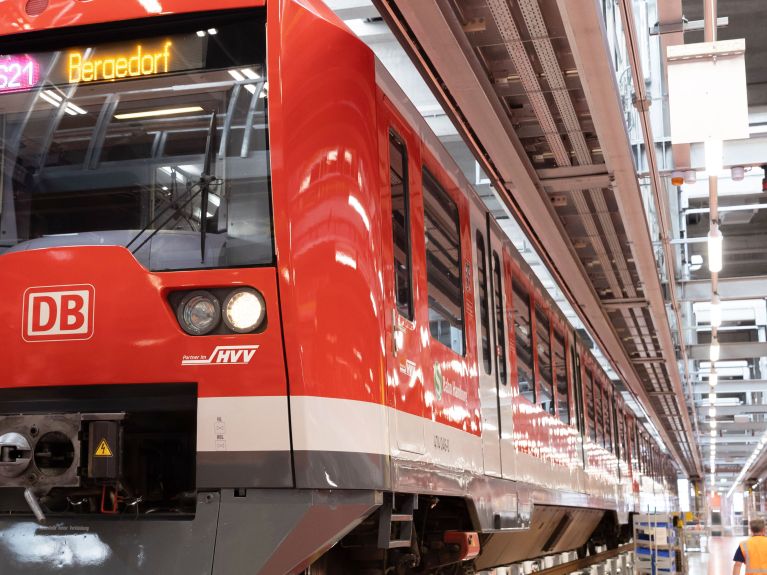Digital trains and smart route planners
Modern mobility concepts also rely on digital solutions. We present two forward-looking approaches from Germany.

Digitalisation and the intelligent use of data can make a decisive contribution to the mobility of the future. In Germany, many cities and regions are already exploiting this potential to make transport safer, more efficient and more sustainable. We present two ideas that were awarded the German Mobility Prize in 2021.
Digital city railway Hamburg
The first automated railway on Germany's rails is running in the Hanseatic city of Hamburg. The first converted trains were introduced there in October 2021 at the ITS Congress, the world's largest industry meeting on intelligent mobility. The fully automated and digitally controlled trains travel on a specially upgraded route. The trains run largely autonomously, with a driver intervening only in the event of disruptions. Plans are afoot to use the system on other routes, and the Hamburg model could also serve as a blueprint for similar projects in other cities.
The digital suburban trains consume less energy and can be operated on a tighter timetable and thus carry more passengers. The project is a cooperation between the Hanseatic City of Hamburg, Deutsche Bahn (DB) and Siemens Mobility. DB CEO Richard Lutz has called the digital city railway a "key to the mobility turnaround".
Efficient navigation for lorries
Germany is the largest transit country in Europe and there are correspondingly many lorries on German roads. But not every route is passable for lorries; sometimes, for example, a bridge is too low or a road too narrow. Lorries can avoid being unexpectedly slowed down if more is known about the route in advance. That is why the SEVAS project offers a system into which municipalities can feed relevant data, ranging from bridge heights to HGV priority routes. The data is then made available to map producers and providers of navigation services. So far, however, the project is being tried only in North Rhine-Westphalia.
You would like to receive regular information about Germany? Subscribe here:


